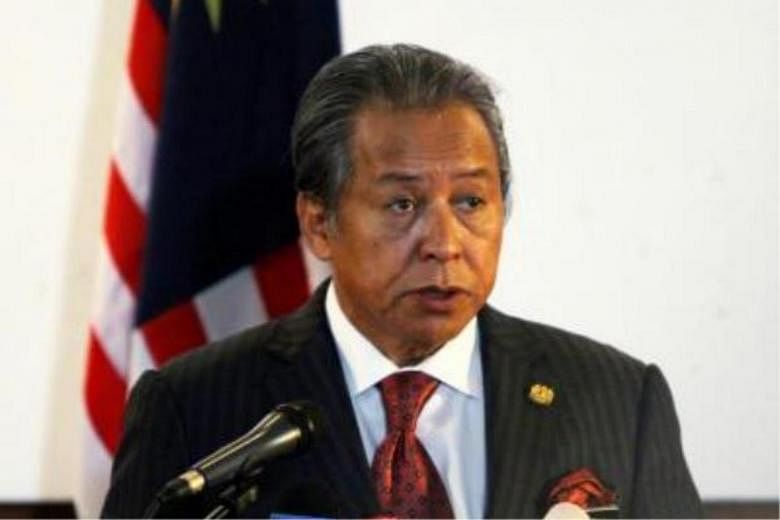PETALING JAYA (THE STAR/ASIA NEWS NETWORK) - Malaysia's Foreign Affairs Minister Datuk Seri Anifah Aman has hit back at the Wall Street Journal (WSJ) in response to a commentary by opposition leader Datuk Seri Anwar Ibrahim.
In an open letter released on Sunday, Anifah said the publication lacked the understanding and knowledge of Malaysia and its history.
He said that it was a pity that the Wall Street Journal has fallen for "desperate, unfounded allegations by a politician and presented them as facts" and taking sides in Malaysian politics.
"The Wall Street Journal gives Anwar the platform to raise false, politically motivated allegations of corruption against our Prime Minister," said Anifah.
Anwar had last Thursday written an opinion piece on the WSJ criticising the leadership of Prime Minister Datuk Seri Najib Razak.
Anwar said in his piece that he could not recall a time when racial and religious sensitivities have become so inflamed, and at the same time so poorly managed by the country's political leadership.
He also added that due to the 1Malaysia Development Berhad (1MDB) scandal and dropping value of Malaysian ringgit, foreign investors are "increasingly wary" of the country's economic situation.
Anwar is currently in his fifth month of his jail sentence over a sodomy conviction in February.
In his post, Anifah added that it might have been relevant for the Wall Street Journal to mention that Anwar was convicted of corruption in 1999. "The verdict was not overturned," said Anifah.
He also said that if Anwar truly believed that he was innocent in the sodomy case, he could have submitted his DNA to the court.
"If the charge had been 'trumped up', as the WSJ falsely says, that would have proven it. But he did not - hardly an action of an innocent man," said Anifah.
He also criticised Anwar and the opposition for not supporting the 1Malaysia policy, which he called the "greatest attempt" in Malaysia's history to forge a national identity that includes all races and religions.
"Why not? Was it because Anwar himself had a well-documented history of rabble-rousing and extremism, as well as of spouting anti-Semitic remarks - as the WSJ well knows but again fails to mention," said Anifah.
He disputed the suggestion that Malaysia is in danger of becoming a "failed state", as Anwar had written in his commentary.
"The suggestion that Malaysia is in danger of becoming a "failed state" would be laughable - if it were not for the fact that some people take Anwar seriously and will believe what he says, no matter how wild or imaginary," said Anifah.
Anifah reminded the publication that Malaysia has been a democracy since independence in 1957 and elections are fiercely contested.
"The opposition won five out of the country's 13 states in 2008. Political discourse is vibrant and noisy," he said.
Anifah added that if anyone doubted that Malaysians had fundamental liberties, they could see how Malaysians were free to criticise the government on news websites.

